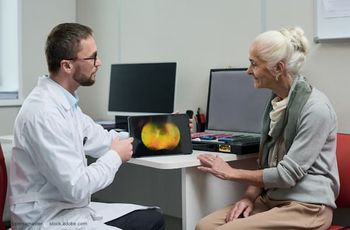
Study: Sight loss in working-age people is under-researched
Researchers from Anglia Ruskin University and the University of Oxford conducted a study that reveals knowledge gaps for conditions that affect 18-64-year-olds in the UK.
A team of researchers has completed a study focusing on a lack of clinical research to address the leading causes of severe sight impairment (SSI) among the working-age UK population, which costs the UK economy an estimated $9 billion (£7.4 billion) annually.1
Researchers from Anglia Ruskin University and the University of Oxford conducted the study, which examined how clinical studies align with the causes of SSI, among both the general and working populations.
According to an Anglia Ruskin University news release, the researchers found that eye conditions causing the most SSI certifications in working-age (aged 16-64) individuals are less clinically researched compared to those in the general population.
Inherited retinal disorders (IRDs), which cause sight loss in about 1 in 2,000 people, were targeted as a key area for addiotnal clinical research. Despite being the leading cause of SSI in the working population, the number of registered clinical studies on IRDs falls short of other conditions.1
Moreover, the researchers noted in the news release their work emphasizes the need for increased focus on disorders of the visual cortex and congenital anomalies of the eye, which are leading causes of visual impairment in children and working-age individuals.
Lead author Jasleen Jolly, PhD, associate professor within the Vision and Eye Research Institute (VERI) at Anglia Ruskin University (ARU), detailed some of the findings of the research.
“Our research found that degeneration of the macula and posterior pole is the leading cause of SSI certification in the general population and is the subject of the most research activity,” she said in the news release. “However, hereditary retinal disorders are the predominant cause of SSI certifications in the working-age population, yet the number of clinical studies focusing on this group of conditions is substantially smaller than those on macular degeneration.”
Jolly added the work by the research team highlights a growing need for vision care.
“These findings emphasize the need to understand and address not only the leading causes of sight loss in the UK population as a whole, but also to prioritize conditions that severely impact working-age individuals to reduce the health and socioeconomic impacts of sight loss.”
According to the news release, the research was published in the journal Clinical Ophthalmology.
Reference
Liu WJ, Taylor LJ, MacLaren RE, Jolly JK. Clinical Research on the Leading Causes of Severe Sight Impairment in the UK General and Working Populations. Clin Ophthalmol. 2023;17:2729-2735 DOI: https://doi.org/10.2147/OPTH.S417773
Newsletter
Keep your retina practice on the forefront—subscribe for expert analysis and emerging trends in retinal disease management.


































